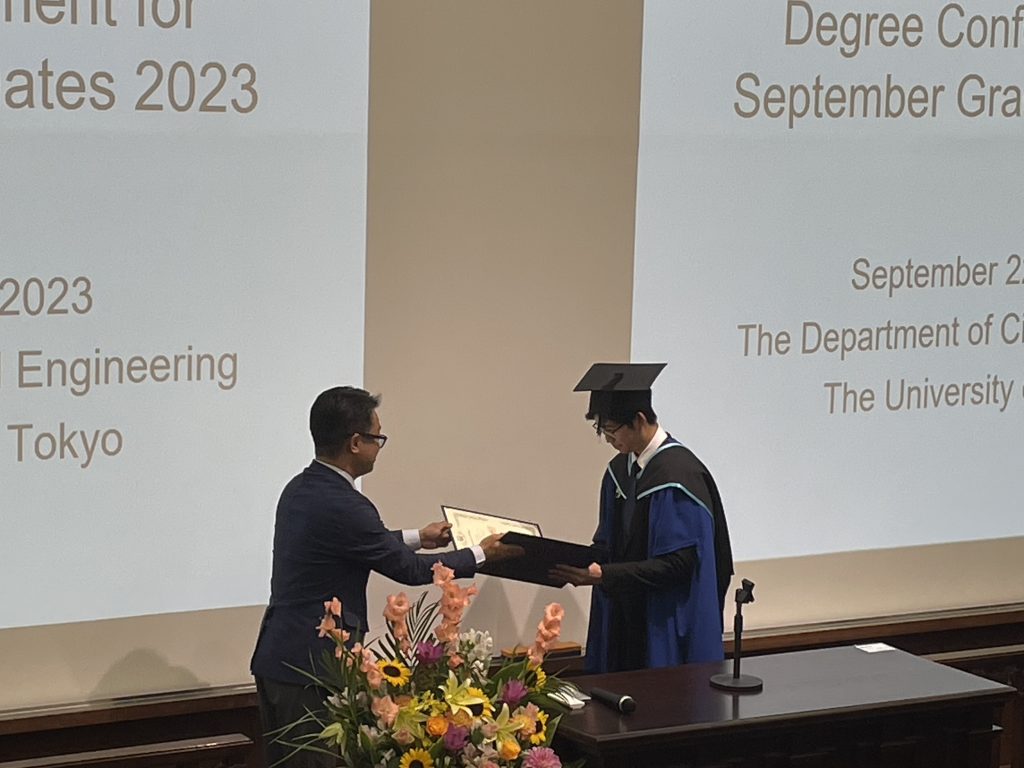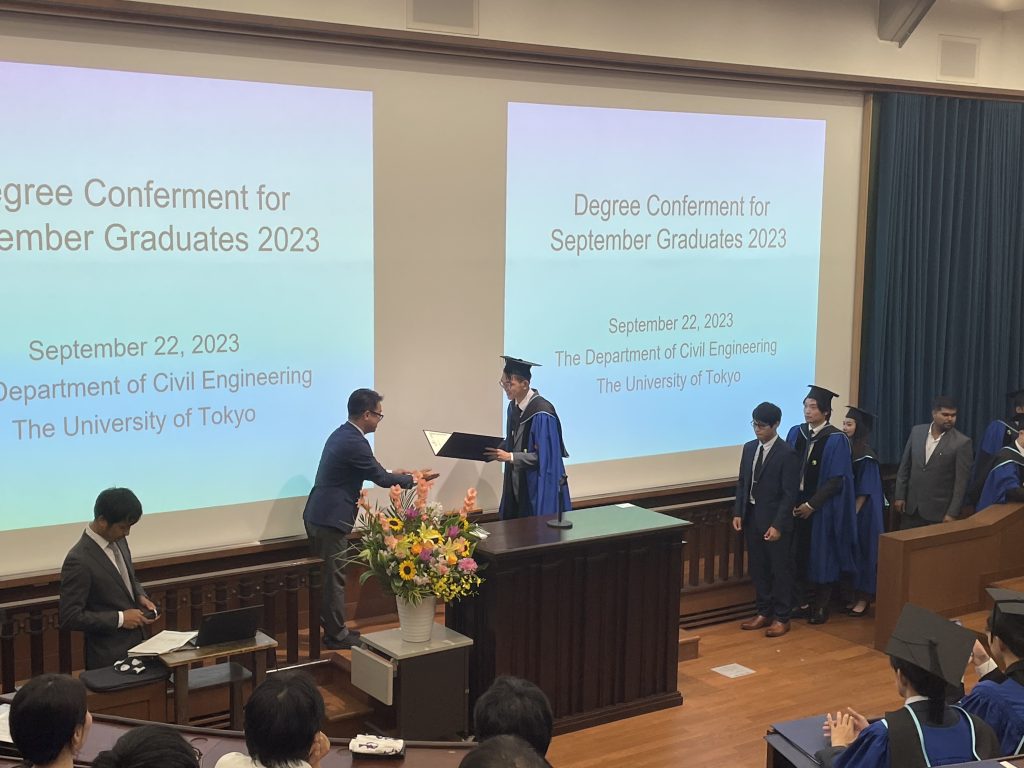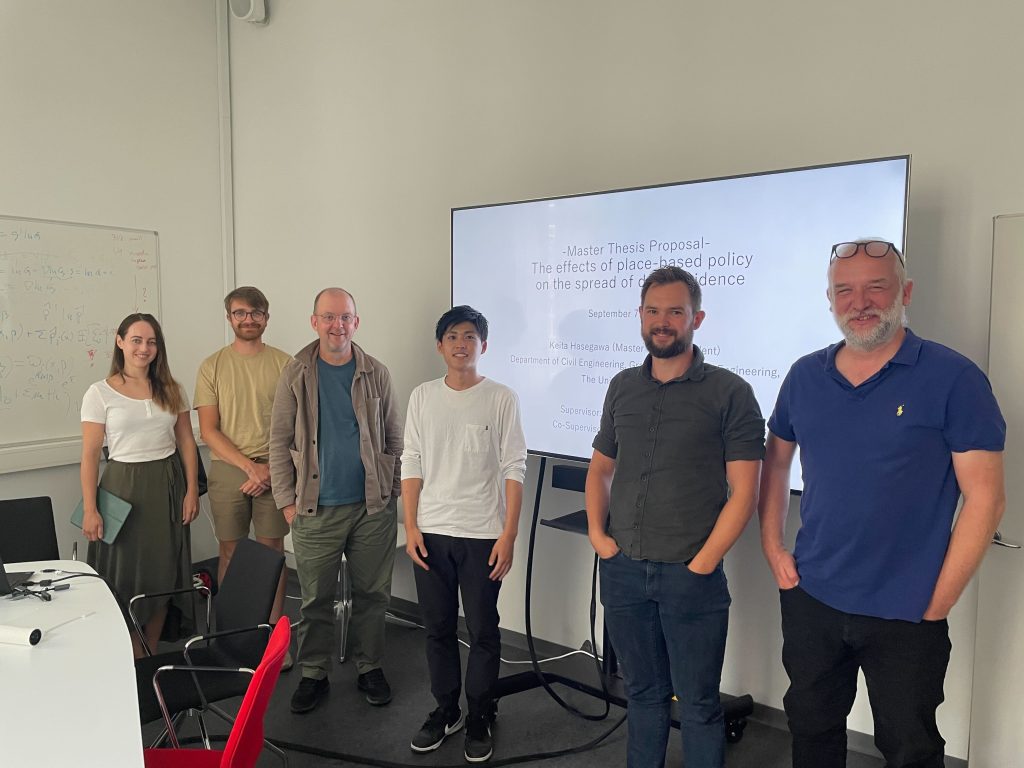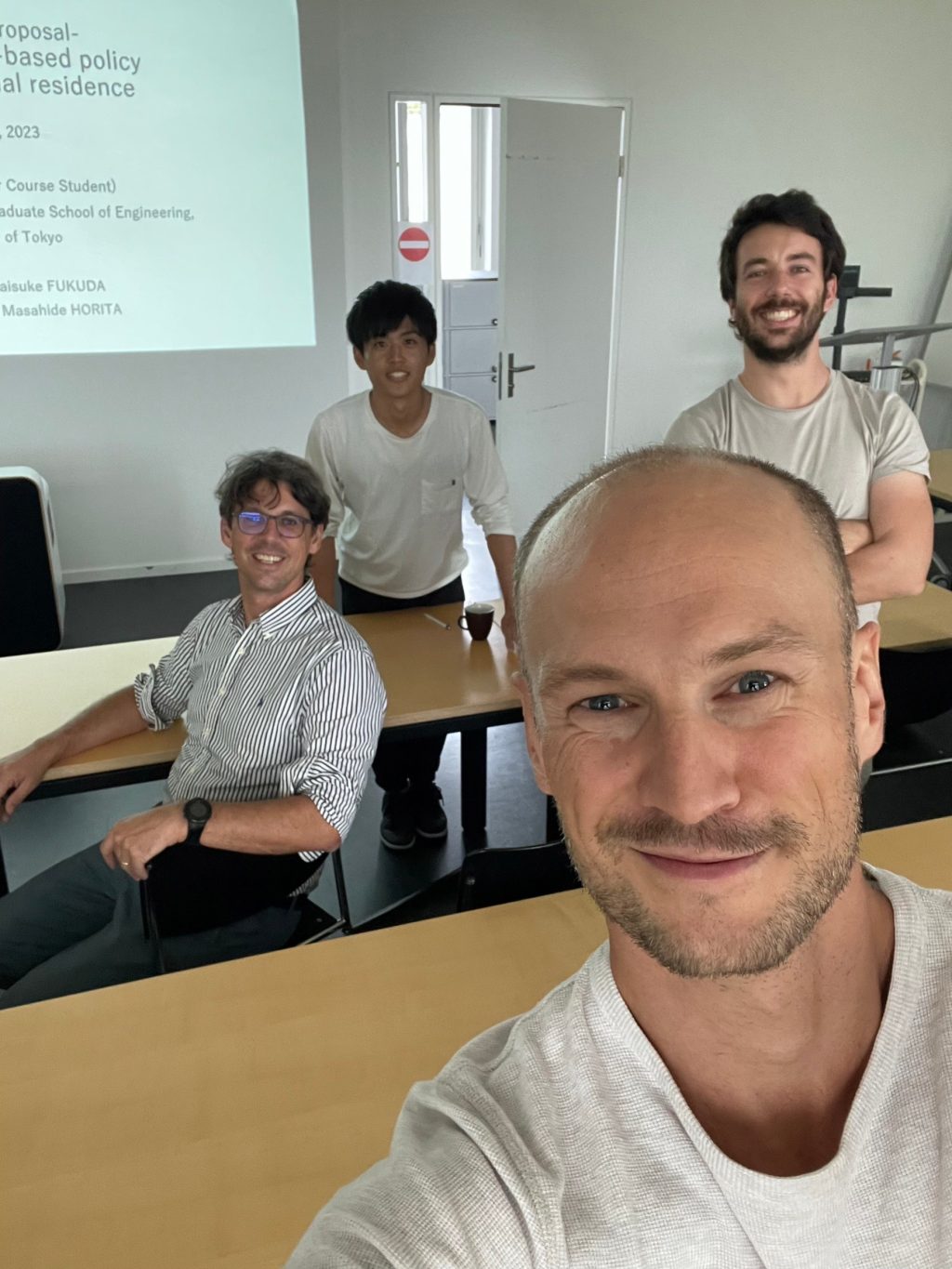Fukuda sensei visited the Traffic Safety Project in Okinawa
At the end of June, Dr. Fukuda participated in the Yui-Maru Project in Okinawa. The Yui-Maru Project is a collaborative initiative led by the Toyota Mobility Foundation involving the Okinawa Prefectural Police, the University of the Ryukyus, and the University of Tokyo. It aims to address the frequent accidents caused by tourists driving rental cars.
Toyota Rent-a-Lease Okinawa was inspected during the visit, and various traffic danger spots were identified. Having driven a rental car in Okinawa, I recall the challenges of navigating the intricate and narrow streets of the old town.
Our laboratory frequently addresses tourism policies related to overtourism in Okinawa and other regions in our students’ graduation research. With Okinawa’s population estimated at 1.46 million (as of June 2024) and 8.53 million tourists in 2023 (domestic and international combined), the need for a safe and comfortable coexistence between locals and tourists is evident. This figure highlights the significant impact of tourism on the region.
Reflecting on this, it becomes clear that addressing these challenges from a traffic engineering perspective is essential to ensuring the safety and comfort of both residents and visitors.
Reference:
Okinawa Prefecture Planning Department Statistics Division (Updated June 1, 2024). “Estimated Population”. Accessed July 12, 2024.
Nikkei Newspaper article (May 2, 2024). “Okinawa’s Fiscal Year 23 Tourists, Domestic Visitors Reach Record High of 7.26 Million”. Accessed July 12, 2024.
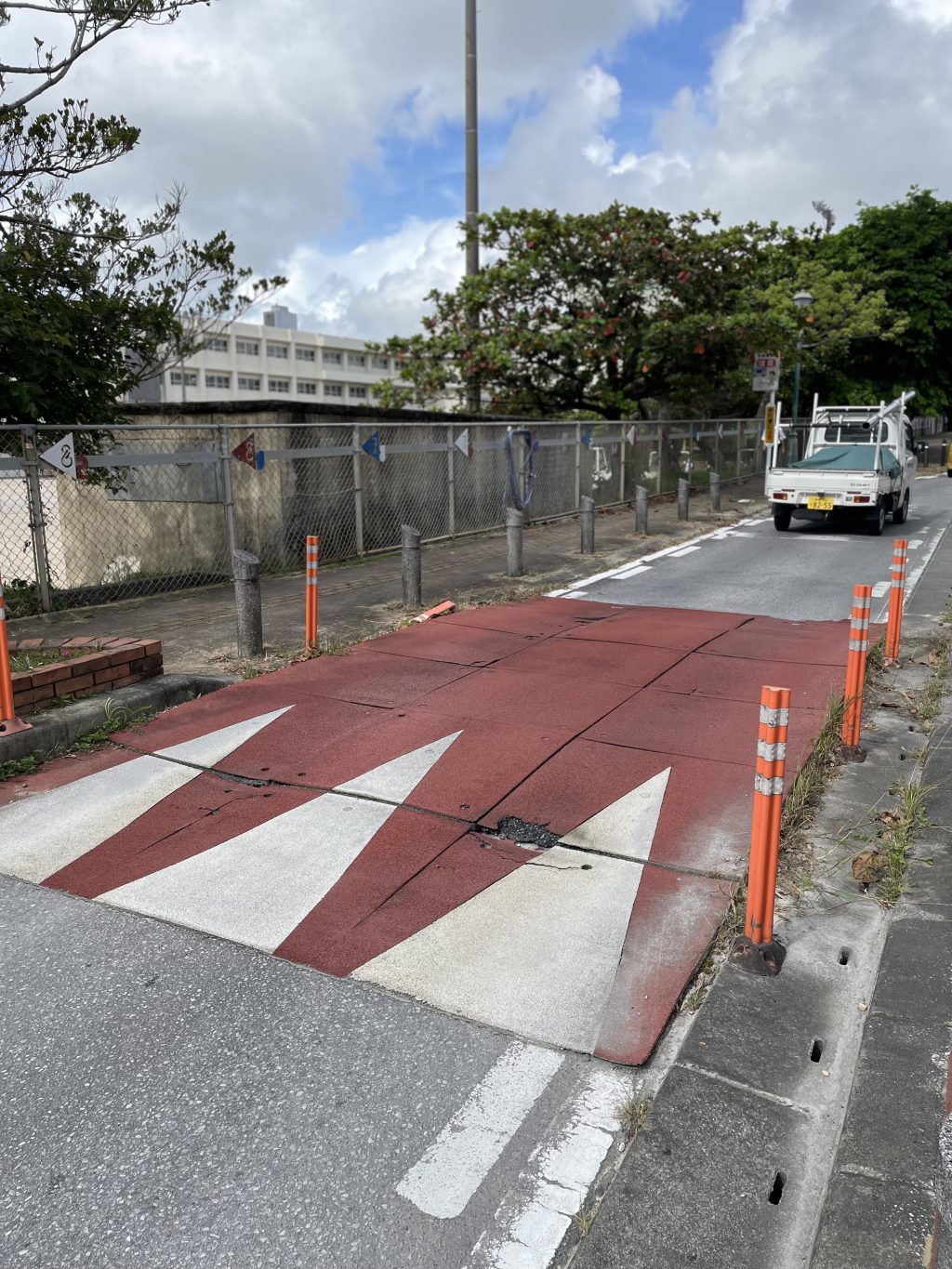
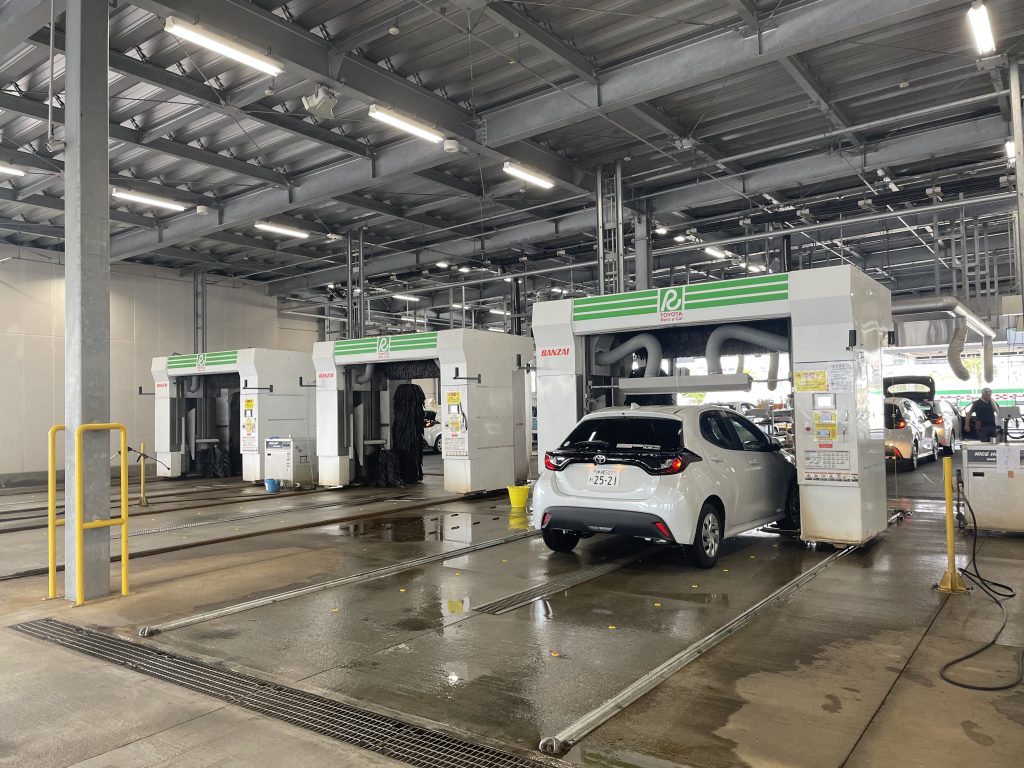
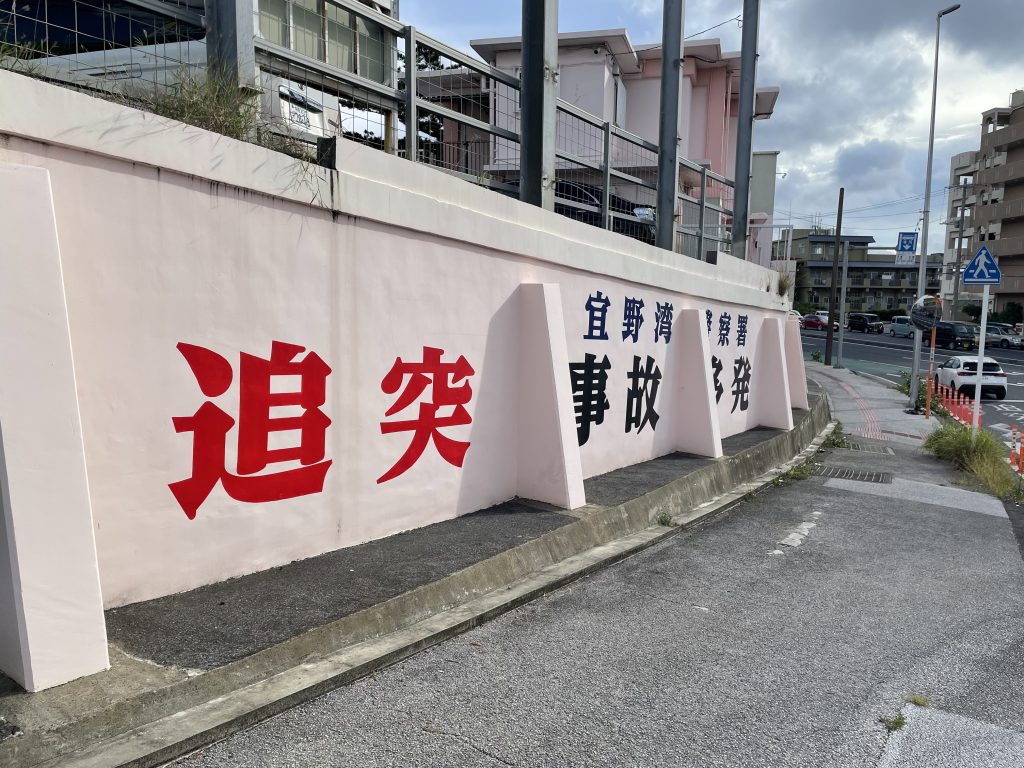
Bachelor’s Thesis Presentation in Okinawa
I am Takeshi Uemachi, an M1 student. I have been interested in disparities in mobility and have been working on my graduation research on “Poverty and Transportation in Okinawa.”
At the end of June, I held a presentation at the prefectural office. In addition to meeting new people for the first time, attendees included members of Professor Kamiya’s lab at the University of the Ryukyus, officials from the prefectural office, and staff from the social welfare council who have been supportive of my research. After the presentation, I received many comments on the results and discussions, which provided insights for continuing similar research in my master’s program. I also received words of encouragement for the future development of my research, which made me feel a strong sense of responsibility.
I will continue to work hard to clarify the actual situation and achieve results that can lead to policy recommendations. Once again, thank you for providing me with the valuable opportunity to present my findings on site and for the warm welcome. This summer, we also have a joint seminar with the University of the Ryukyus planned. I am looking forward to seeing everyone again!
[Uemachi]
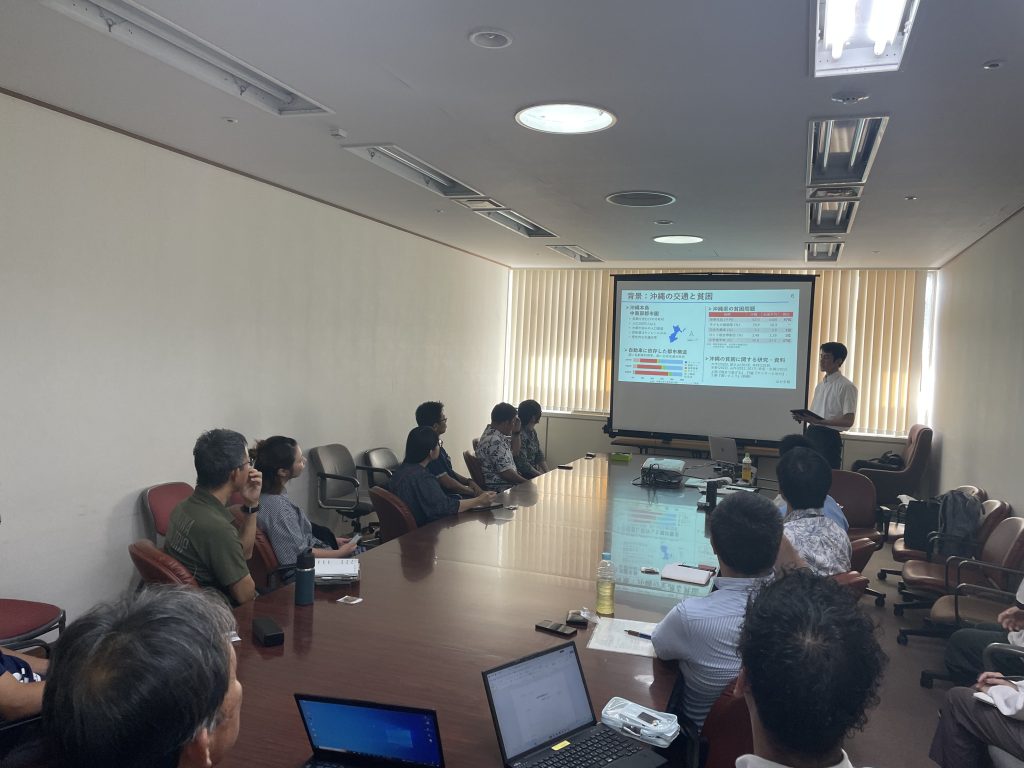

JSCE Spring Conference @ Hokkaido University #2
On May 25 and 26, our 3 senior year students joined at the 69th Spring Conference of the Japan Society of Civil Engineers (JSCE) held at Hokkaido University to find their research interest. Here is the messages from them.
(Matsunaga) On May 25th and 26th, we B4 students attended the Civil Engineering Planning Conference held at Hokkaido University as listeners. Through the poster sessions and presentations, we learned about various research topics and received inspiration for our graduation research. Additionally, seeing the impressive presentation and Q&A session by M1 student Mr. Meka allowed me to concretely envision the person I want to become in a year. Thank you for providing us with this valuable opportunity.
(Kanaoka) It was my first time attending an academic conference, a place where specialized and cutting-edge discussions are held. I was overwhelmed by the enthusiasm in the venue, where professionals from various fields were eagerly engaging in conversations. Their dedication to their research was very inspiring. I will continue to work hard.
(Tanaka) I participated as a listener. During this conference, I was fully engaged in the research presentations and squeezing out questions, but I was able to find particularly interesting research topics and methods. Reflecting on it, I want to apply what I learned to my future research. In a year, I aim to participate in conferences with high-quality presentations and discussions. Thank you for giving me this valuable experience.
JSCE Spring Conference @ Hokkaido University
On May 25 and 26, our first-year master’s student Mega gave a presentation at the 69th Spring Conference of the Japan Society of Civil Engineers (JSCE) held at Hokkaido University.
It was a rare experience for me to present in front of such a large audience in a quiet setting. Although I was nervous throughout the presentation, my anxiety eased once the Q&A session began. I was thrilled that my message was clearly conveyed, and I received praise for the interesting content and valuable advice.
I am deeply grateful to Professor Fukuda and the members of my lab for their invaluable feedback on aspects I hadn’t noticed myself during the preparation phase. I am determined to make the most of this experience and dedicate myself to my research over the next two years of my master’s program. [Mega]
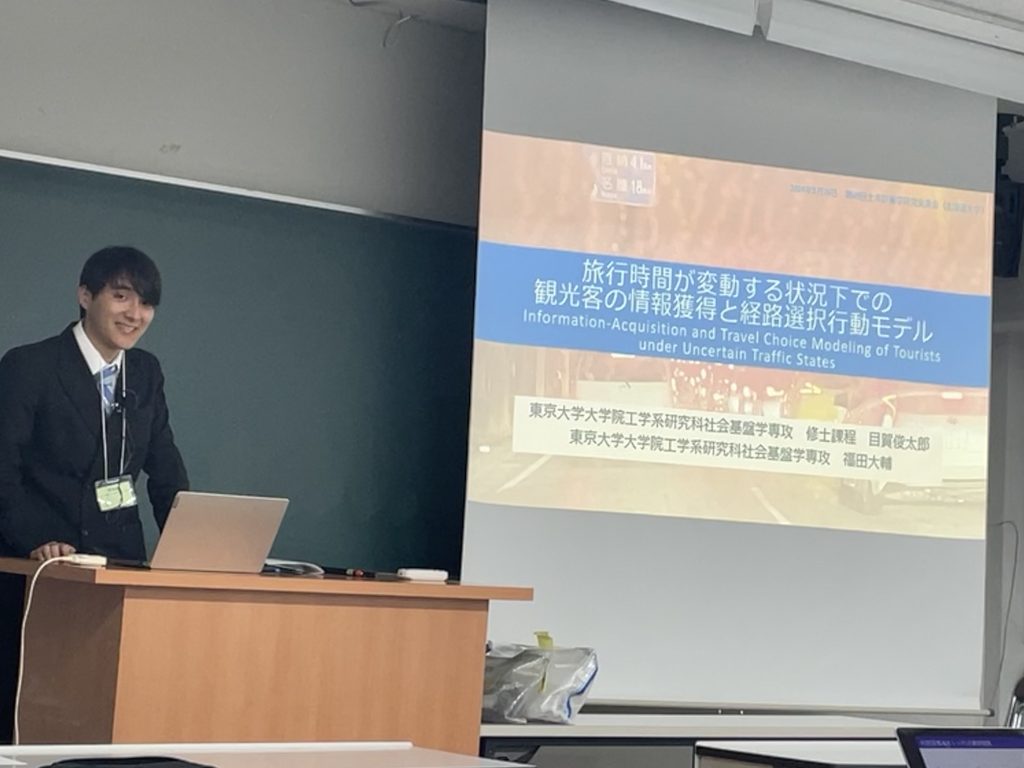
| Conferences Lab Life by Students
2024 Noto Peninsula Earthquake Inspection
On May 14 and 15, I accompanied the Noto Peninsula earthquake survey.
Through the survey, first of all, I felt that the topographical factors of the Noto Peninsula played a major role in the disaster. One of the few roads in the peninsula was blocked by collapses and sediment, which hindered the movement of people and goods, the key to disaster response and recovery. Along the northwestern coast of the Noto Peninsula, the ground was uplifted and ports were made unusable. Liquefaction and land subsidence also occurred on soft ground, damaging much infrastructure. Tunnels and bridges located in landslide zones were rendered impassable by the landslides. However, even with some unique topographical factors, the worsening problems that contribute to disaster damage are common throughout Japan, such as urban concentration, aging buildings and infrastructure, and the declining birthrate and aging population.
In a situation where people, goods, and money (and information, especially immediately after the disaster) are still not being gathered to their full potential, some opinions may not be fully understood when considering priorities and methods for reconstruction and restoration, and some decisions may be difficult to make. I was encouraged to see people in various positions working hard and devising creative solutions, and at the same time, as a person involved in infrastructure, I was keenly aware of my own responsibility to do so.
I would like to introduce some of the most memorable landscapes from the survey, The first is National Route 249 along the coast, which was impassable at many points due to collapsed slopes. The second is the Noto Satoyama kaido, where there were many collapsed embankments. The road was re-built with embankments, detours were built, bridges were constructed, ramps were used, and other ingenious measures were taken to make it possible to move toward Wajima City.
[Mega]
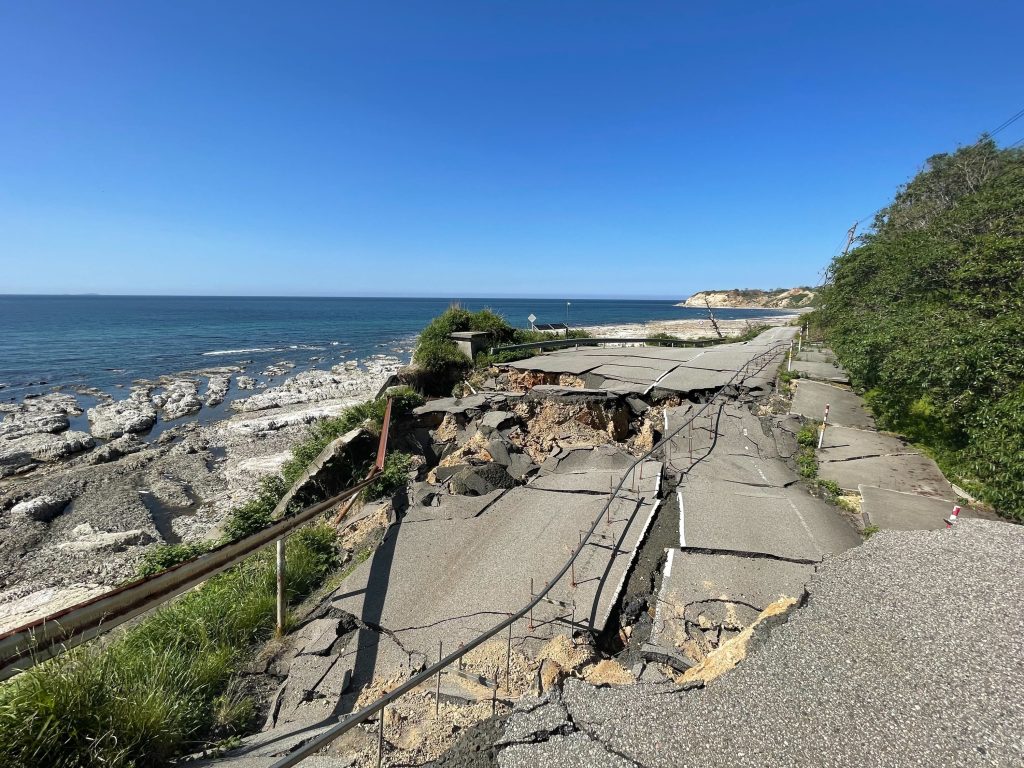
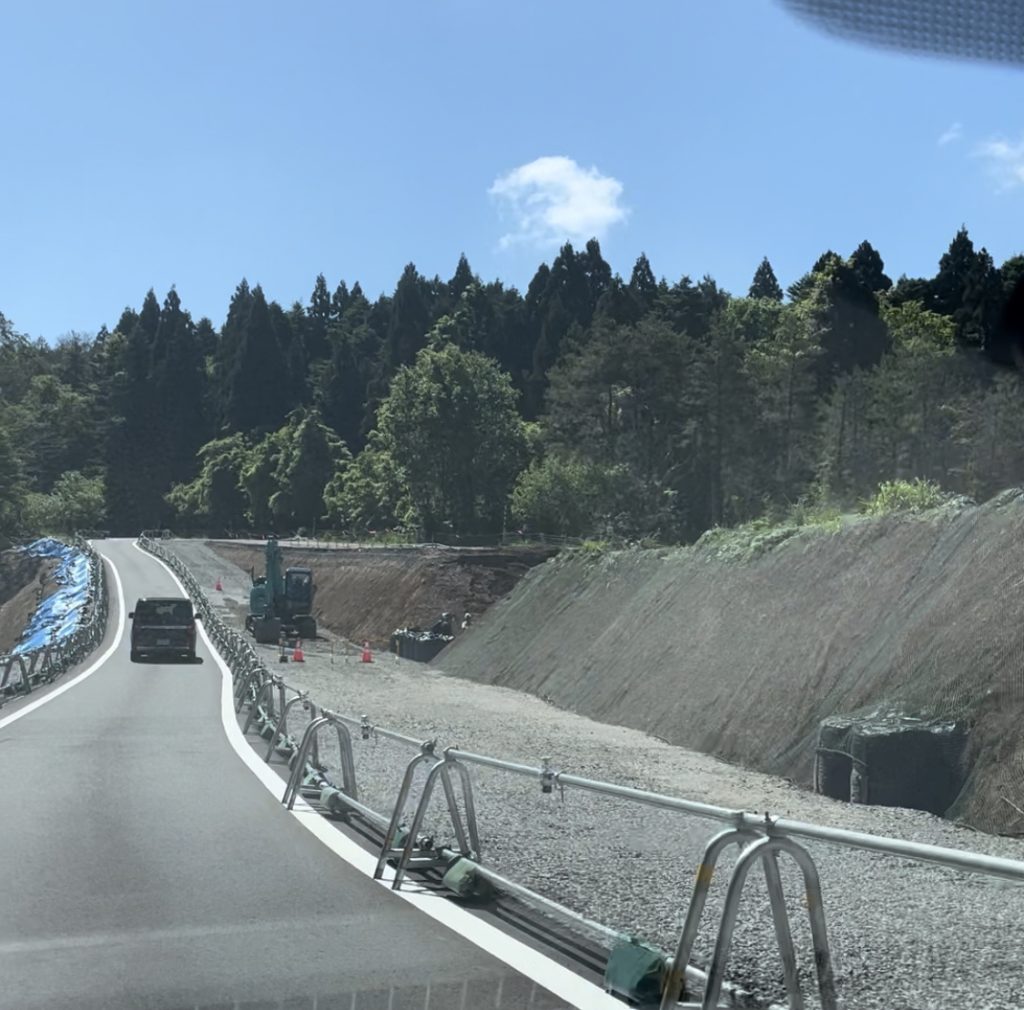
Visit from Kanazawa University
Mr. Nakagawa, M2 student at Kanazawa University, is visiting our laboratory for a week this week. He wrote a self-introduction and we are pleased to publish it here! (Below is written by Mr. Nakagawa)
My name is Nakagawa, and I am from Kanazawa University. I am very happy to have been invited by Prof. Fukuda through my supervisor, Prof. Dantsuji. I will be staying here for about a week.
I am very grateful to Prof. Fukuda and his laboratory member for creating a comfortable atmosphere for me from the first day. I am also very grateful for the detailed questions and suggestions they gave in response to my research presentation at the seminar the other day. I would like to take this back home and apply it to my research in the future.
The 22st Behavior Modeling Summer School
On 18th to 20th September, Behavior Modeling Summer School 2023 was held in a hybrid form on the Hongo campus and online. This year, four members of our laboratory, M1 and B4, participated the summer school.
In this year’s analysis, we created a transportation mode choice model, applied the model to test data, and tried to analyze the characteristics of people who did not fit the model. We had a little bit of a hard time during the three days, but with the help of the advice we received from the professors, we worked together and managed to get the results we wanted!
As a result, we did not win any prizes, but our ideas and attempts were appreciated by the professors. On a personal note, this summer school was the second and last opportunity for me, since M1 and B4 students usually participate in our lab, and it was a great experience for me to deepen my knowledge, not to mention that I had many learning opportunities during this 3-day school period to concentrate on the behavioral models. Thank you very much.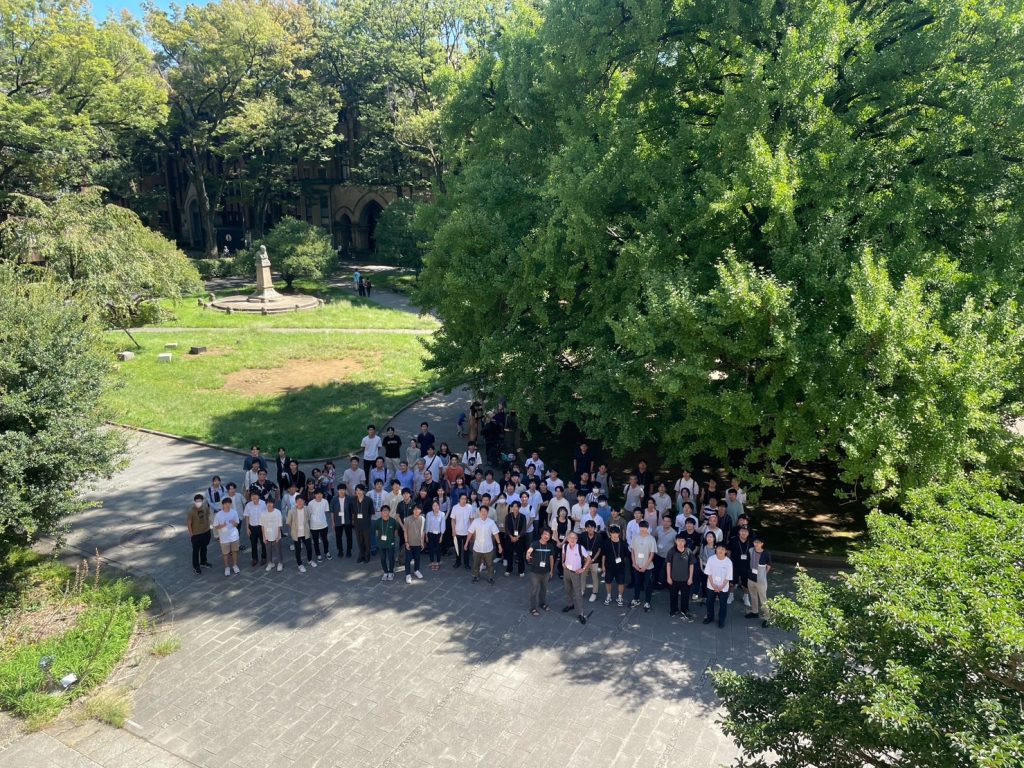 [Nakamura]
[Nakamura]
Graduation ceremony & A message from Chee Yung
On September 22nd (Friday), the graduation ceremony for the graduate school was held at Hongo Campus. Krittanai and Chee Yung have successfully completed their master’s programs. Krittanai was also awarded the Nishino Akiyo Award, which is an award for the Japanese language class.
Krittanai will continue to stay in our lab after this October and pursue a doctoral degree. Chee Yung, on the other hand, will be leaving Japan upon graduation. Below is a message from Chee Yung (please refer to the English page for the original text):
Hi, I am Chee Yung. Time has flown by, and I now stand as a graduate of the University of Tokyo. The past two years have been an incredible journey filled with challenges, growth, and unforgettable memories.
During the first semester, because of COVID-19 travel restrictions, I had to attend classes and lab seminars through online platforms. While all professors and students were kind and willing to offer various forms of assistance, the absence of physical interaction presented a significant challenge. Thankfully, I was able to arrive in Japan during the second semester, which marked the beginning of a journey that allowed me to engage in-person with everyone in the UTokyo community. Despite the busy coursework and presentations, I found it enjoyable to meet with everyone at UTokyo and immerse myself in discovering Japanese customs.
As I conclude my time at UTokyo, I want to extend my heartfelt gratitude to my supervisor, Prof. Fukuda. He has been an invaluable source of support throughout my journey at UTokyo, offering assistance not only in academic matters but also in my daily life and financial support, especially during the midst of the pandemic. Moreover, despite the fact that I made some mistakes during my time in Japan, his remarkable tolerance created a supportive environment in which I felt comfortable learning and growing. This significantly boosted my confidence in completing my research.
Furthermore, I was fortunate to become a member of LIIS. Due to my limited knowledge of Japanese customs and my poor proficiency in the Japanese language, I was somewhat uneasy and apprehensive when I first arrived in Japan. However, all the members of the LIIS were very welcoming and friendly. Through numerous drinking parties and various activities such as lab trips, hotpot parties, fireworks festivals, skiing, and watching baseball games, I gradually adapted to Japanese life, became more cheerful, and began to relish my time in Japan. More importantly, I have come to regard them as some of my closest friends in Japan, and I will undoubtedly cherish the memories of the days we spent together!
In terms of my research, I have developed a semi-dynamic link-based transit assignment model for predicting passenger volumes within the Tokyo Metropolitan Area’s railway network, taking into account time dynamic effects and various characteristics of the railway network, such as the presence of multiple railway companies, differing fare systems, and through services. While I have encountered several challenges and made some mistakes throughout my research journey, I now view these setbacks as natural parts of the process. In fact, these mistakes have provided me with valuable opportunities to enhance my study and fortify my research position. Therefore, I encourage all of us not to fear making mistakes but to remain steadfast, for, as the saying goes, “to err is human.”
To conclude, these two years have been full of challenges, both in my daily life and in my studies. However, I was fortunate to receive help and encouragement from many individuals during my stay in Japan. While I cannot thank each and every one of you individually in this article, please know that your collective support and kindness have left an unforgettable mark on my heart. Lastly, I wish everyone all the best, and I hope to see you all again in the near future!
Report on the Musha Shugyo Program
Hi, I am Hasegawa. Over the past three weeks, I participated in the Musha Shugyo Program, an overseas research program organized by the Graduate School of Engineering.
The Musha Shugyo Program is designed to offer travel support to students, enabling them to organize their own visits to prestigious overseas research laboratories. This program encourages students to present their research findings and receive reviews from leading experts in various fields. The goals are to solidify their position within the international research community, boost research motivation, and potentially initiate international research collaboration (quoted from the application guidelines).
During the first half of the program, I had the honor of visiting Prof. Fosgerau at the University of Copenhagen. In the latter part, I travelled to the University of Bern to visit Prof. Ehrlich. My connection with Prof. Fosgerau was established through Prof. Fukuda, who had worked in Denmark about 15 years ago. Furthermore, Prof. Ehrlich’s research on the post-evaluation of place-based policies in the EU significantly influenced my undergraduate thesis. Hence, I took the opportunity to request a visit, and I’m grateful that he kindly accepted my request, despite it is hard to be accepted.
Both professors invited their colleagues during my presentation, so I received many questions and comments from their professional standpoints in urban and spatial economics. Particularly, their recognition of my research on the revitalization of rural areas in Japan through multi-habitation, a topic I have been researching, was highly significant and motivating for my future research.
Furthermore, during interactions with the students at the host institutions, we discussed our personal backgrounds, current research, and insights into our respective countries. It was a good opportunity for me to view Japan and Tokyo from an external perspective and rethink our daily lives in the city.
Although it was a short period of time, each day was very exciting for me. These three weeks also made me clear where I need to improve. I look forward to utilizing this experience to advance my future research and hope for the opportunity to share my research findings with the professors someday!
EASTS@Shah Alam
[4-7 September, 2023]
Mr.Krittanai presented his research at the 15th EASTS conference 2023, which was held in Shah Alam, Malaysia on 4th-7th of September, 2023. The title of his presentation was as follows:
“How Do Fares Affect the Utilization of Ride-hailing Services: Evidence from Uber Japan’s Experiments (Sriwongphanawes Krittanai and Daisuke Fukuda)”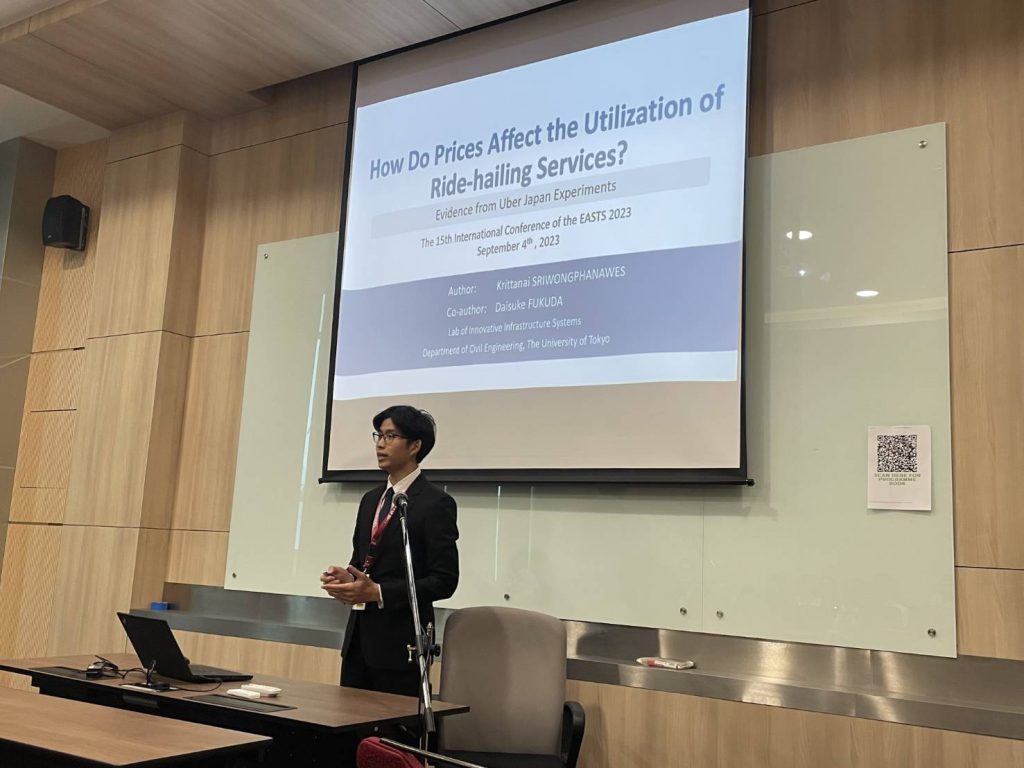 After the presentation, he engaged in a stimulating conversation with the participants where they exchanged their experiences regarding the use of ride-hailing in their own countries. We would like to express our graditudes for all the comments and questions.
After the presentation, he engaged in a stimulating conversation with the participants where they exchanged their experiences regarding the use of ride-hailing in their own countries. We would like to express our graditudes for all the comments and questions.
In addition, his paper was considered for the best award for EASTS. Although his paper did not win, it will be published in the journal of EASTS called Asian Transport Studies (ATS)
During the conference, he had the chance to meet people from many countries, both in academic and industrial, which was a valuable experience for him. Finally, on the last day of the conference, he joined the technical site visit to Smart Selangor Operation Center (SSOC) to learn about the intelligent transportation systems in Shah Alam.
This is a very good opportunity for him to gain experiences and knowledge which will definitely inspire his future work as a Ph.D. student.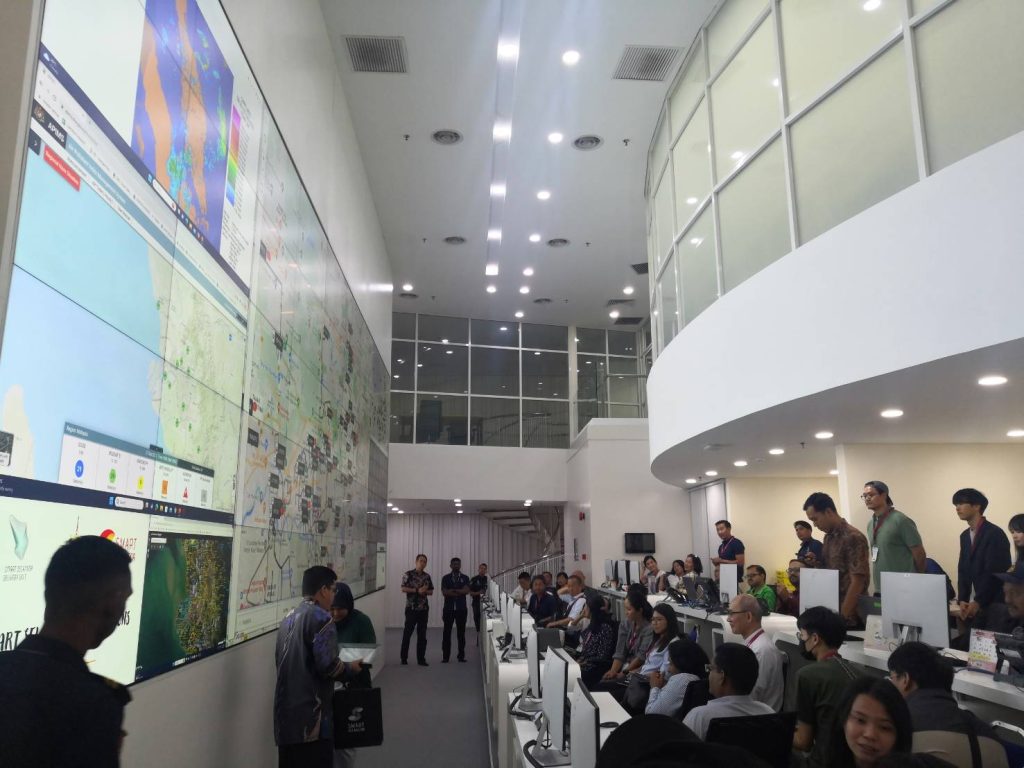
| Conferences Lab Life by Students
